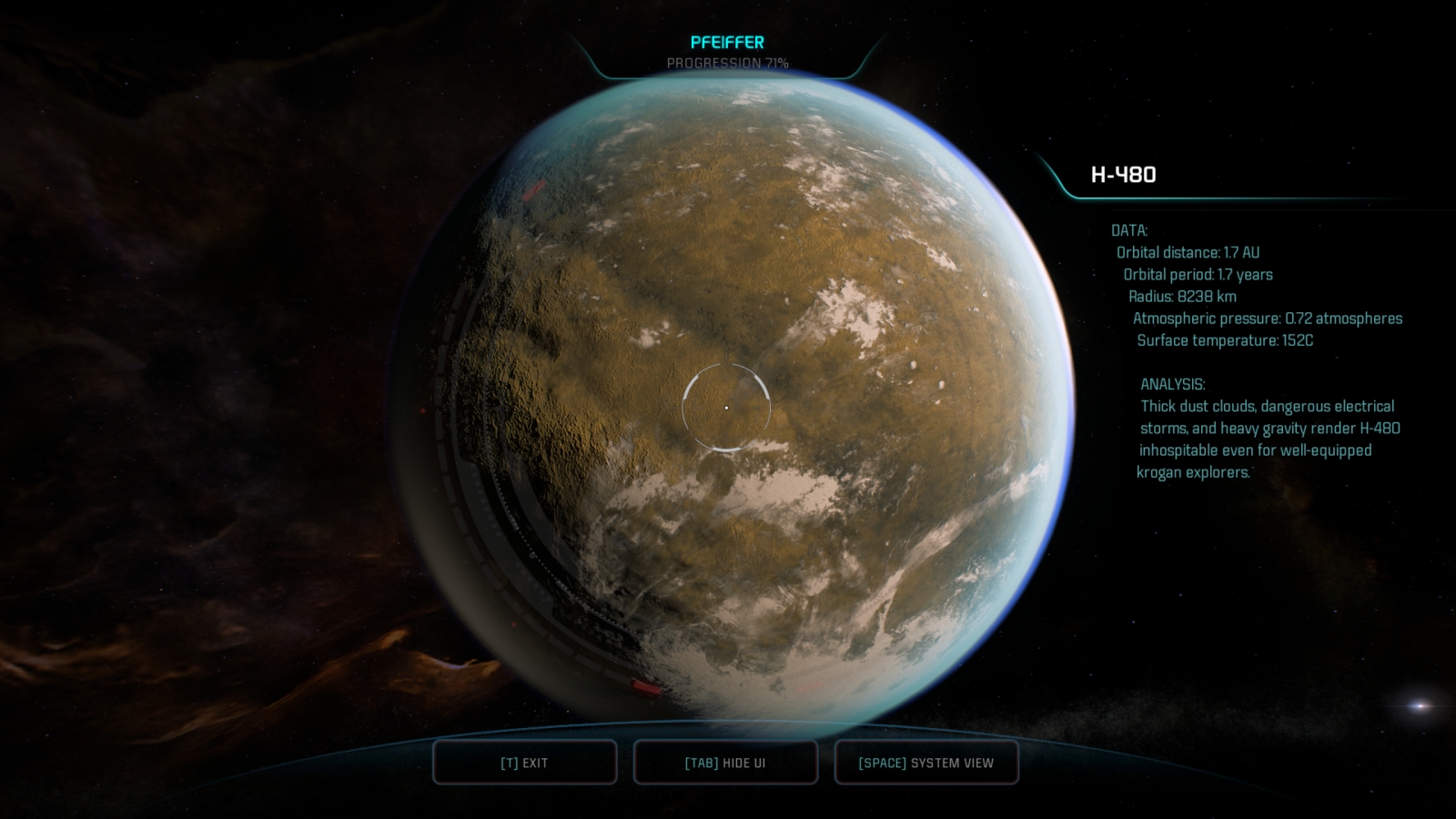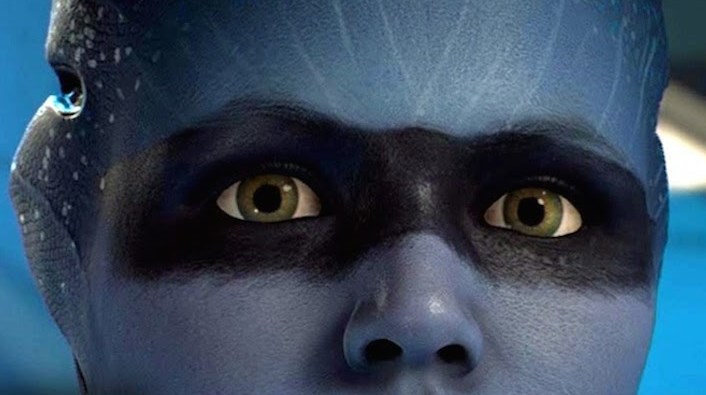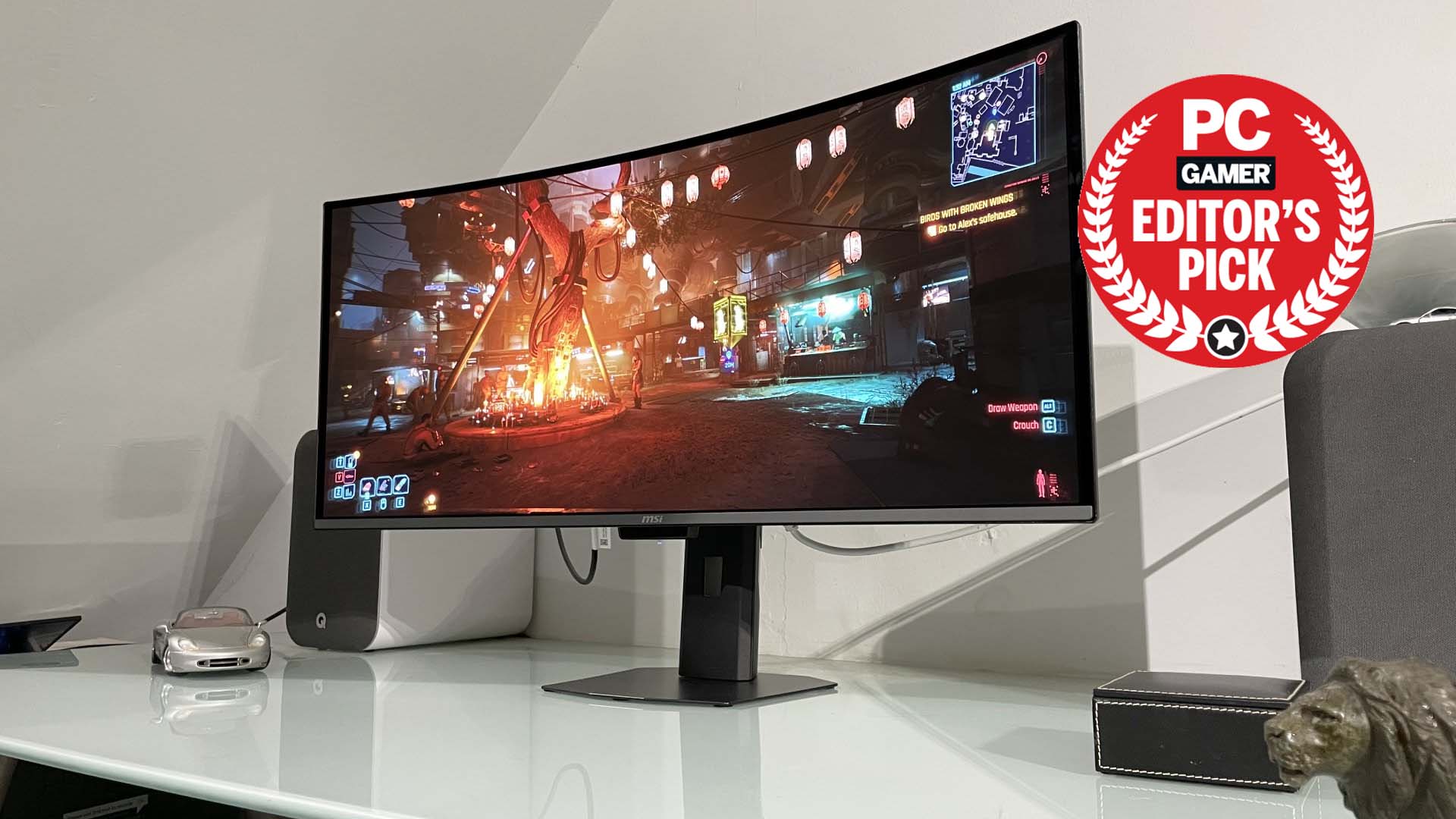Why I hate Mass Effect: Andromeda's planet scanning system
Long trips, meager rewards, and no risk make space travel boring.
In Mass Effect: Andromeda, the planet scanning system is back, but in godawful condition, withholding even the shallow satisfaction of Getting A Thing behind long, unskippable travel scenes and underwhelming feedback. It turns space exploration into a chore and supplants curiosity with misery. It might seem like a trivial complaint, but we're only able to discuss the beginning of the game—which we have mixed feelings on—and I actually liked planet scanning in Mass Effect 2 and Mass Effect 3. Chris Thursten is a fan of this new system, so we aren't all in agreement, but I can't stand it.
Ryder, as Pathfinder and captain of the Tempest, uses the galaxy map to fly around space willy-nilly like it’s nothing more than a 7-11 snack run. The snacks being minerals and other resources, mined by shooting probes planetside or salvaging junk from a wrecked ship. In the early game, there aren’t many systems to explore, but each contains around five planets with a hidden anomaly somewhere in the mix. You hold down a button to scan the system, track down anomalies, and click on each planet to enter their orbit. It should be simple stuff, but here's what exploring a single system looks like:
Long trips, small or no rewards, and zero risk. Somehow, the planet scanning is worse than it’s ever been.
Mining history
Mass Effect 2 ruined me with its planet scanning system. I endlessly orbited planets waiting for the small indication that some minerals were hidden below my reticle, clearing out entire solar systems for no other reason than preferring a clean house. Ask me offhand and I can’t even remember what planet scanning was for. What I do remember is that it was addicting and satisfying on a very basic level—like popping a thousand little planet zits one after the other. A meter vibrated and lit up whenever the reticle hovered over prime mining spot and planets were full of the stuff. Even if you didn’t give a damn about research or war assets, the basic act of Mass Effect 2’s planetary acupuncture was hypnotizing. That said, I’m an obsessive hair-puller. Tension and release, tension and release.
Source: earvcunanan on YouTube
Andromeda’s only reward is a ‘bleep’ and a tiny UI indication that I have +143 Iron or +50 Milky Way Research. That might be enough iron to make one gun and enough Milky Way Points to research another, but they’re just crediting systems that feed into more systems that will require far more resources than what planet scanning has provided so far. Planets most often have one resource or nothing at all, with the occasional object carrying a handful of crafting resources with names and uses that still escape me.
These meager rewards would be less disappointing if the process didn’t take so damn long. There’s an homage to Mass Effect 2’s system while you’re planetside in a dune buggy, but having to land on a planet and drive in circles on a hill to make a graph vibrate isn’t nearly as satisfying.
Keep up to date with the most important stories and the best deals, as picked by the PC Gamer team.
Travel time is already a huge issue in Andromeda. Just moving between planets and getting into orbit can take a good 15 seconds (depending on how far your destination is) as a first-person animation from the perspective of the Tempest plays out. The ship slowly turns away from your origin and towards your destination, then lazily floats from one planet to the next. When you’re just trying to get some damn resources, it feels like quite the crawl.
The trip perspective is already abstract—the scale of Mass Effect’s universe isn’t so small that planets are a short floaty drive’s distance from one another. We know Ryder is looking at a map UI. It’s OK to treat it like one.
Take the wheel
Mass Effect 2 and 3’s galaxy maps were fun to explore even though you weren’t in direct control of a ship rendered with the same detail as a ship in Elite. Instead, you moved a tiny model of the Normandy between planets and systems with direct control. However small, it gives off the impression you’re piloting the thing. Planets without many minerals weren’t a bust because you drove there and could putter out in a jiffy. No big deal.
The previous Mass Effect games knew that a little fear and uncertainty were important in underlining the adventure of space travel.
Direct control also gave off an impression of the scale of the universe without making planet selection feel like clicking a cell on a spreadsheet. Andromeda attempts to go further, fully rendering every solar system to the point where you can exit the map and look out the Tempest’s windows at each duskish orb, but revokes direct control. The tradeoff isn’t worth it. Each system also needs to load in, which is presumably why the trips are unskippable. If I’m in the mood for romantic space sightseeing, I’ll grab my leather bound Moleskin and watch the planets go by, but over the course of dozens of hours I think I’ll run out of poetry.
In Mass Effect 2, trips required fuel. Every long journey to another solar system felt dangerous. Mass Effect 3 even had itty-bitty reapers chase you between them. Space travel is scary, and the previous Mass Effect games knew that a little fear and uncertainty were important in underlining the adventure of space travel. Looking out of the Tempest’s windows at big glassy spheres doesn’t do much for me because getting to them is just a matter of pressing a button and waiting. There’s zero risk involved. What if Indiana Jones knew he couldn’t die?
Source: ReptilicusFinch on YouTube
Without feeling threatened by traveling in Andromeda's galaxies, looking at them only made me marvel at texture work—not what they might be hiding or what kind of creatures live there, or whether I’d be able to make it home safely.
And with no control, even over a tiny Tempest, space exploration is reduced to indulgent crane shots through space. My suspension of disbelief doesn’t start and end with sparkly shapes set against NASA’s astronomy picture of the day.
If we have to sit through each trip, make the small rewards feel bigger than they are. Be like Blizzard and shoot shiny letters into my eyes if I so much as imagine a planet. Even if I’m getting something worthless, I want to feel like I won the Super Bowl. Slather that rusty car in shiny paint. Make me feel anything, please.
Maybe the planet scanning system improves further into the game, but it’s an awful first impression. Mass Effect is supposed to make me feel like a space adventurer, but with such a tedious, impotent interpretation of space exploration, I feel more like a space butler, tidying up planets over a long and tiresome workday.
James is stuck in an endless loop, playing the Dark Souls games on repeat until Elden Ring and Silksong set him free. He's a truffle pig for indie horror and weird FPS games too, seeking out games that actively hurt to play. Otherwise he's wandering Austin, identifying mushrooms and doodling grackles.




